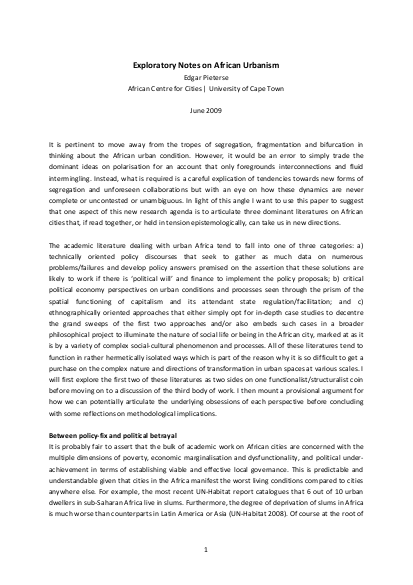
It is pertinent to move away from the tropes of segregation, fragmentation and bifurcation in thinking about the African urban condition. However, it would be an error to simply trade the dominant ideas on polarisation for an account that only foregrounds interconnections and fluid intermingling. Instead, what is required is a careful explication of tendencies towards new forms of segregation and unforeseen collaborations but with an eye on how these dynamics are never complete or uncontested or unambiguous. In light of this angle I want to use this paper to suggest that one aspect of this new research agenda is to articulate three dominant literatures on African cities that, if read together, or held in tension epistemologically, can take us in new directions.
Resource collections
- UN Habitat - Urban Response Collection
- Urban Response - Urban Crisis Preparedness and Risk Reduction
- Urban Response Collection - Community Engagement and Social Cohesion
- Urban Response Collection - Economic Recovery
- Urban Response Collection - Environment and Climate Change
- Urban Response Collection - Housing, Land and Property
- Urban Response Collection - Urban Crisis Response, Recovery and Reconstruction
- Urban Response Collection - Urban Resilience